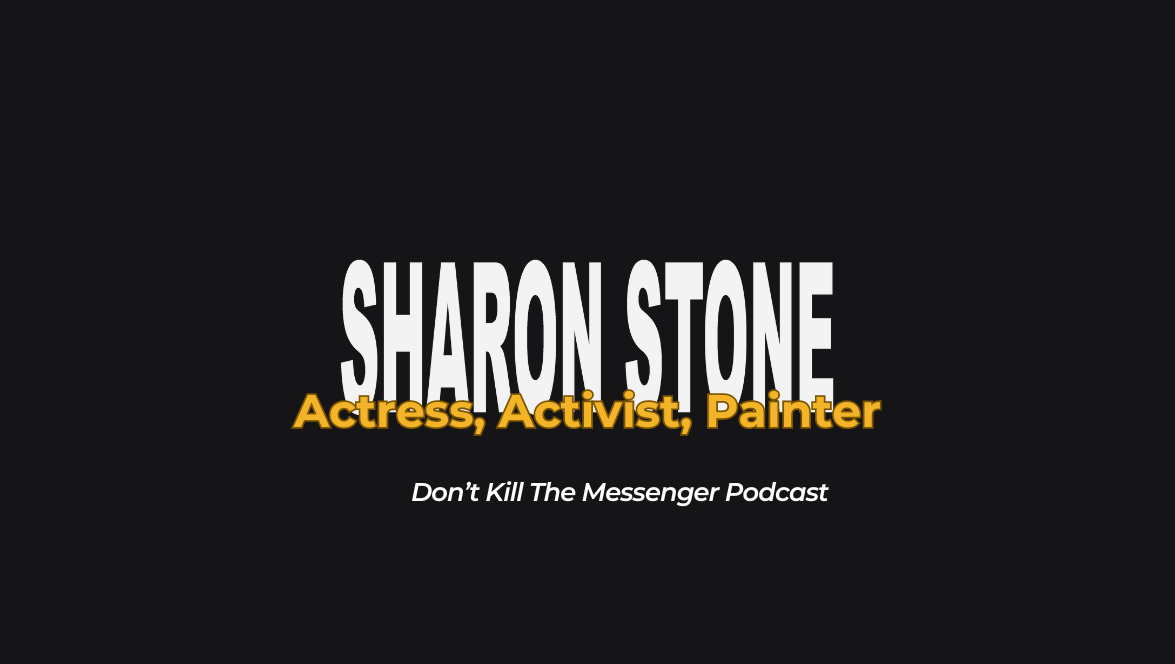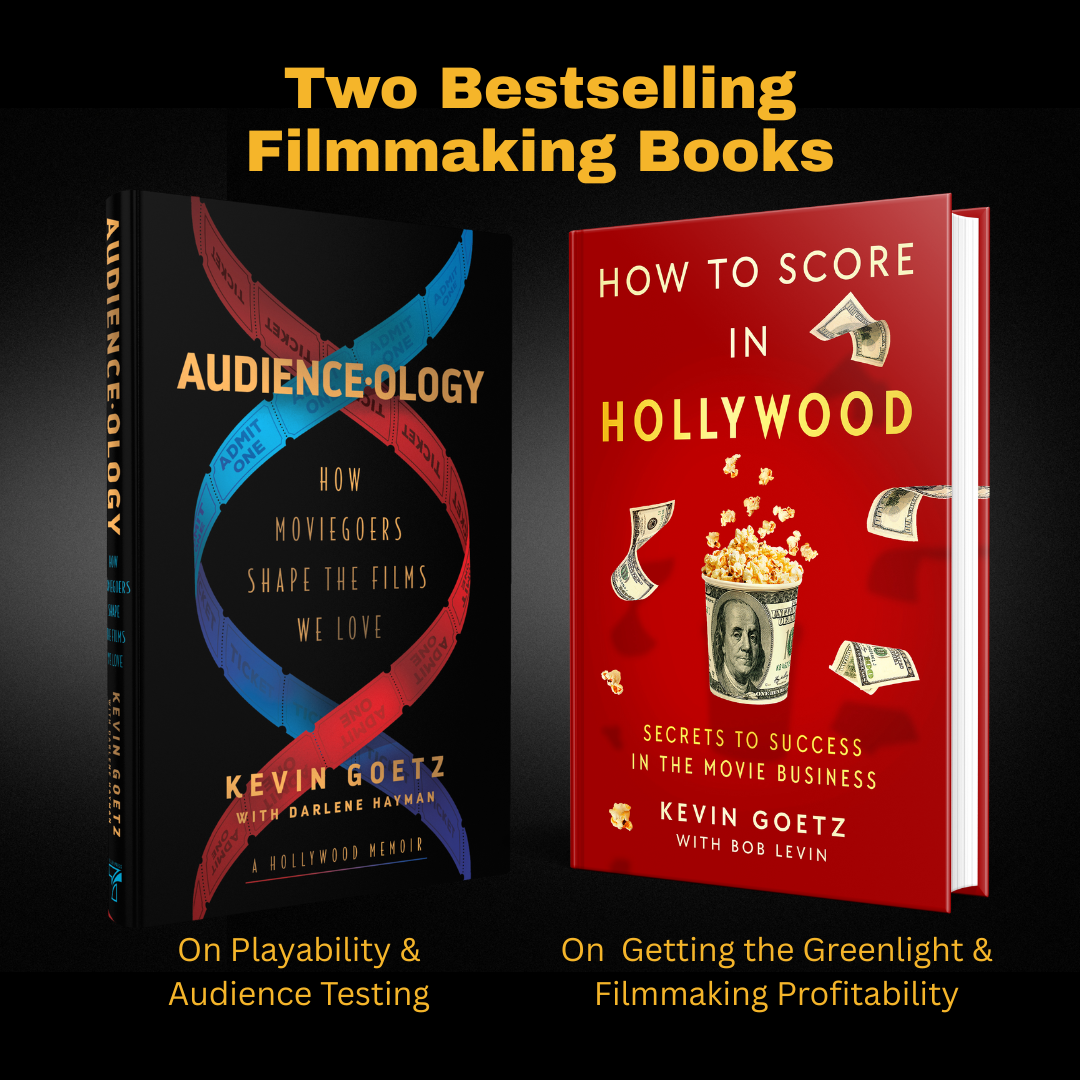
Don’t Kill the Messenger welcomes legendary actress, Sharon Stone.
In this episode of “Don’t Kill the Messenger,” entertainment research expert Kevin Goetz sits down with his longtime friend and Hollywood icon, Sharon Stone, for an intimate and revealing conversation about her life, career, and the challenges she faced in the entertainment industry.
Kevin Goetz on Sharon Stone:
She’s become one of my best friends. Both Neil and I are the godfathers of her children. We are an integral part of each other’s lives and we are the family that we have chosen for each other. You know, I always say there’s a season, a reason, and a lifetime in friendships. And we are clearly a lifetime. I’m not going to give you her bio because her name is simply enough.
Humble Beginnings
Sharon discusses her difficult upbringing in Meadville, Pennsylvania, where her family struggled financially. She reflects on learning to shoot a gun at age five, and growing up working class. Sharon shares:
“We were broke, and Miss Crawford County was a sub-pageant of the Miss America Pageant. And by winning Miss Crawford County, I got a partial scholarship to college. And I also had an academic scholarship because I was going to college at age 15. So, it really helped because my dad was a factory worker who worked swing shift an hour away from home. So this was a hardscrabble upbringing.”
A Painful Childhood Lesson
Sharon shares a painful childhood memory of being slapped by a popular girl in school, drawing parallels to the challenges she has faced in Hollywood. Kevin describes it as trying to “slap the different out of you,” and praises Sharon for persevering while opening herself up to criticism and ridicule.
“She slapped me across the face, and they all started laughing and they walked away. And I was so stunned. I went and sat against the school wall till recess was over. And then I went in the bathroom and her handprint was on my face. And I didn’t want to go to class because I was so humiliated that her handprint was on my face. And so, I hid in the bathroom for the rest of the day because her handprint was still on my face all day long. And it’s kind of a thing because Hollywood is a lot like that. There’s a lot of the club, and there’s a lot of people who play with you all the time. And then when you don’t give the right answer, you’re sitting against the schoolyard wall and then they’re back in class making fun of you. And you’re in there with a handprint on your face and you don’t know what happened. And it takes a long time to recognize that this is the unhealthy social aspect of life in general.”
The Craft of Acting
Kevin notes that he has always seen Sharon as a character actress locked in a leading lady’s body, and they discuss some of her most memorable character roles:
“It is so the truth about me, that’s why the films like Casino, Basic Instinct, or even The Muse are films that are so right for me. We’re looking at Cassavettes once again, we’re looking at that familial understanding of work. When we look at The Muse, we’re looking at Albert Brooks who is about the work. He’s not about anything else. When we look at a Casino, we’re looking at Martin Scorsese. It’s about the work. When we look at Basic Instinct, we’re looking at Paul Verhoeven. It’s about the work.”
Fighting for Fair Compensation in Hollywood
Sharon addresses the pay disparity between male and female actors, advocating for fair compensation:
“Because I will get a call that says, this is a hundred million dollar movie and we’re going to pay this leading man who frankly nobody’s ever really heard of 7 million, but we want to pay you to be the leading actress at 500,000. And I’ll say, no, I made 500,000 on Basic Instinct 30 years ago. So you’re going to pay this unknown guy this out of a hundred million dollars budget. I think instead you should probably pay us each three and a half. Because I think that’s fair and reasonable.”
The Magic of Movies
Sharon and Kevin talk about the importance of the moviegoing experience and the need for studio executives to understand the emotional connection people have with films. She stresses the significance of creating movies with emotional intelligence that evoke powerful emotions.
Sharon Stone on the theatrical experience:
“People go to the movies for many reasons. But a lot of it is because they want to have a feeling with the people they’re with in the movies. They want to be engaged with the people that they’re sitting with. They don’t go to be alone with the film. They go to be with the person that’s sitting next to them with the film. And people that are doing the budgeting of the film have taken that piece of the experience out of their cognition of how films should be made.”
Working with Woody Allen and James Caan
Sharon shares her experience working as an extra on Woody Allen’s “Stardust Memories” and how her part was expanded after impressing the director and cinematographer.
Sharon on landing her first movie role:
I was sitting there and I was having the time of my life. And so, I was there for a few days and then someone came and talked to me and they said, look, they’ve seen the dailies. They can’t pay you what you’re making as a model, but Mr. Willis and Mr. Allen think that this is really where you belong on a movie set and they’d like to ask you to stay for a couple of weeks. How would you feel about that? And I said, I feel great about it. And they said, they want to expand your part. Are you willing to do that? You won’t make what you’re making modeling. I said, I’m willing to do it, and thanks very much. And so they upped the part.
She also discusses her instant rapport with James Caan on the set of a Claude Lelouch film:
And then I had got in bed with Jimmy and the whole scene was me in bed with Jimmy and he flirted with me like crazy. And I was like, keep it to yourself pal. And we just got this repartee going. So we got along like a house on fire and for his entire life, he looked after me.
In Part One of this two-part interview, Sharon Stone opens up about her journey from a small-town girl to a Hollywood icon through talent, perseverance, and commitment to her craft. Through this candid conversation with her close friend, Kevin Goetz, listeners gain an intimate look at the person behind the persona. For the full conversation, check out the podcast episode here. And let us know your thoughts on the episode in the comments!
Don’t Kill the Messenger, hosted by movie and entertainment research expert Kevin Goetz, brings his book Audienceology to life. This bi-monthly podcast takes a peek behind the filmmaking curtain as Kevin talks with famous filmmakers, studio executives, stars, and other creatives about movies, filmmaking, audience test screenings, and much more.
For more information about Sharon Stone:
For more information about Kevin Goetz:
Website: www.KevinGoetz360.com
Audienceology Book: https://www.simonandschuster.com/books/Audience-ology/Kevin-Goetz/9781982186678
Facebook, Twitter, Instagram: @KevinGoetz360
Linked In @Kevin Goetz
Screen Engine/ASI Website: www.ScreenEngineASI.com






